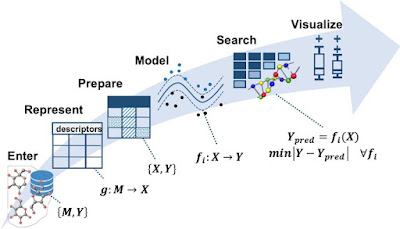Why Focusing on Mathematics is Crucial for Aspiring Machine Learning Programmers
Why
Focusing on Mathematics is Crucial for Aspiring Machine Learning Programmers
Machine
learning (ML) has become one of the IT industries' most exciting and promising
subfields in recent years. Machine learning is at the vanguard of technological
innovation, powering everything from the newest developments in artificial
intelligence (AI) to revolutionizing healthcare and finance. It makes sense
that a lot of programmers are eager to get into this fascinating sector given
its disruptive potential.
But as appealing as the concept of creating intelligent systems may seem,
there's a fundamental reality that all aspiring machine learning programmers
need to acknowledge: mathematics is the building block of machine learning.
Even the most gifted programmer will find it difficult to succeed in this field
without a firm understanding of mathematical ideas.
1.
Mathematics Transforms Data into Actionable Insights
Machine
learning is the process of interpreting data. Data is the first step in any
process, be it stock price prediction, image recognition, or natural language
understanding. However, raw data must be changed, processed, and evaluated
before it can be used.
This is the application of mathematics. Using ideas from statistics,
probability, calculus, and linear algebra, you can work with data, identify
trends, and create well-informed forecasts. For instance, understanding how to
represent data as matrices and vectors—which are crucial for working with
datasets in machine learning—is made easier with the aid of linear algebra.
Without this mathematical basis, the data is still just a set of numbers rather
than meaningful information.
2.
Mathematics is the Language of Algorithms
Machine
learning involves developing and utilizing algorithms that can learn
from data. The foundation of these algorithms is mathematics. Mathematics is
the language that describes how these algorithms function, whether you're
working with supervised learning models like support vector machines and linear
regression or unsupervised techniques like clustering and dimensionality
reduction.
Think
about gradient descent, a basic optimization method for model training.
The approach minimizes a loss function by iteratively changing the model's
parameters; its successful use requires an understanding of the calculus behind
gradients. It would be difficult to optimize or enhance an algorithm
without a firm understanding of these mathematical foundations.
3.
Mathematics Enables You to Understand and Tune Models
Developing
a machine learning model is merely the first step. The true test will be in
optimizing it to ensure it works well in various situations. This entails
comprehending the model's behavior, which is firmly based on mathematical
ideas.
For
example, a key idea in model evaluation is the trade-off between variance and
bias. Understanding the statistical concepts that describe how models
generalize from training data to unknown data is necessary to comprehend this
trade-off. Furthermore, methods like regularization, which lessen the risk of
overfitting, depend on mathematical ideas that are difficult to grasp and
implement correctly.
4.
Mathematics Empowers You to Innovate
Machine
learning is a rapidly developing discipline that is always generating new
models, algorithms, and methodologies. It takes more than just using current
models to stay ahead of the curve; you also need to innovate. A thorough grasp
of the mathematical concepts behind machine learning is frequently the source
of this creativity.
For
instance, developments in linear algebra, calculus, and probability allowed for
the creation of deep learning, which has transformed domains like computer
vision and natural language processing. Scholars possessing an understanding of
these domains were capable of pushing the limits of what machine learning
models could accomplish. Having a solid mathematical background will equip you
as a future machine learning programmer with the skills you need to contribute
to these advancements.
5.
Mathematics Enhances Your Problem-Solving Skills
At
the end of the day, machine learning is about finding solutions to problems, be
they task automation, fraud detection, or customer behavior prediction. Your
ability to solve problems is improved by mathematical thinking, which enables
you to approach difficult problems logically and methodically.
You
may directly use the problem-solving, pattern-spotting, and solution-generating
skills that mathematics teaches you to machine learning. Finding an effective
solution to a new problem will depend on your ability to abstract it into a
mathematical form and apply the necessary tools.
6.
Mathematics is Essential for Interpreting Results
Because
machine learning models can be challenging to understand, they are frequently
referred to as "black boxes". On the other hand, these models can be
made less mysterious by comprehending their mathematical basis.
For
example, one needs to know statistics and calculus to comprehend how a logistic
regression model allocates probabilities to various outcomes. Analyzing a
neural network's output similarly necessitates comprehending the non-linear
changes that were performed on the input. By concentrating on mathematics, you
provide yourself the tools necessary to decipher and justify the judgments your
models make, which is essential for fostering confidence and guaranteeing the
moral application of machine learning.
Conclusion
It
is imperative to understand that mathematics is not only an abstract topic of
study but also the cornerstone of the work you will be performing if you want
to become a machine learning programmer. While the implementation of machine
learning models requires programming skills, your ability to build, optimize,
and innovate in this field will come from your mathematical understanding. You
can become proficient in machine learning and get the confidence to take on
challenging challenges, contribute to cutting-edge research, and remain ahead
in a field that is continuously evolving by concentrating on developing a
strong mathematical foundation. A crucial first step on your path to becoming a
proficient machine learning programmer is devoting time to grasping
mathematics, regardless of your experience level.





Comments
Post a Comment